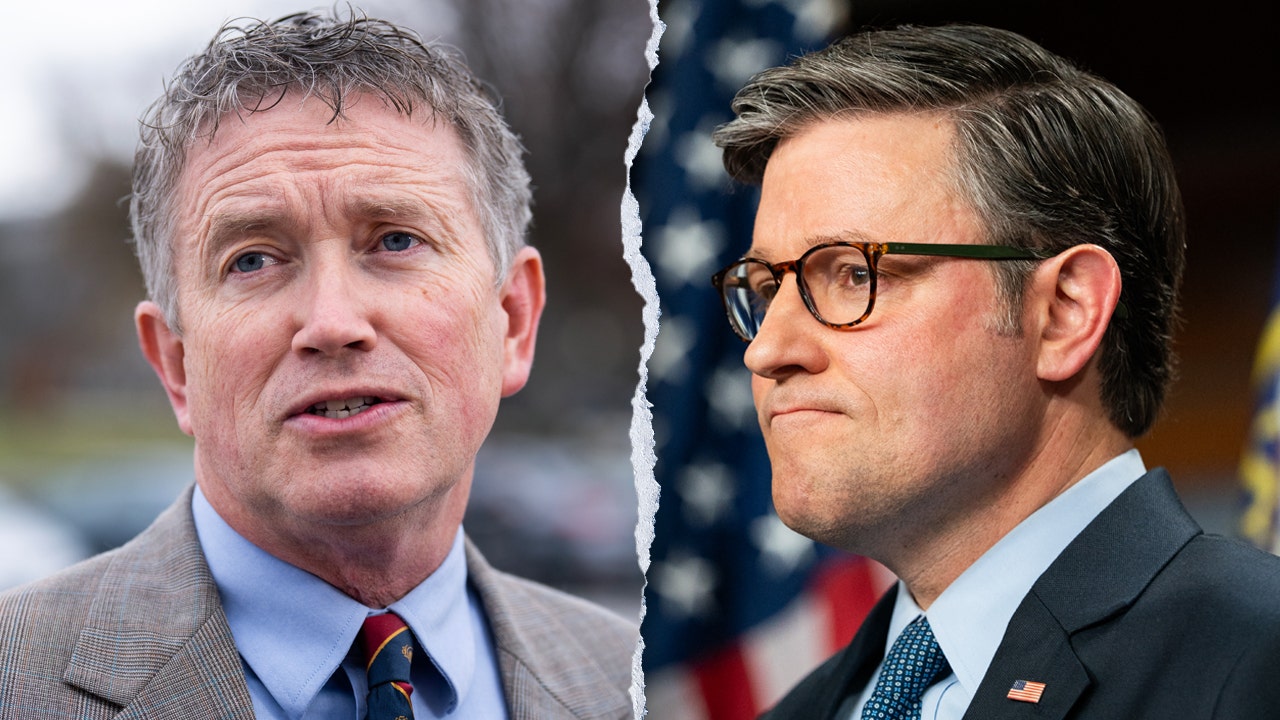World
What 5 more years of Erdogan’s rule means for Turkey

ISTANBUL (AP) — Turkish President Recep Tayyip Erdogan won reelection in a runoff Sunday, following a nail-biter first round two weeks earlier. Having secured another five years, Erdogan now faces a host of domestic challenges in a deeply divided country, from a battered economy to pressure for the repatriation of Syrian refugees to the need to rebuild after a devastating earthquake.
Here’s a look at the challenges ahead.
ECONOMY: HOW MUCH LONGER CAN ERDOGAN’S UNORTHODOX POLICIES BE SUSTAINED?
Inflation in Turkey hit a staggering 85% in October before easing to 44% last month — although independent experts think the latest figure still masks how severe the cost-of-living crisis is in a country where people are having trouble paying skyrocketing rents and buying basic goods.
Critics blame the crisis on Erdogan’s policy of keeping interest rates low to promote growth. Economists generally recommend raising rates to combat inflation.
Despite a faltering economy, Erdogan won the election, in part by softening the effects of inflation with public spending that experts say is unsustainable, including minimum wage and pension increases.
“The Turkish economy has been partying for a long time and well beyond its means. And I think in the period after the election, this is when we are going to pay for the feast that we consumed,” said Selva Demiralp, professor of economics at Istanbul’s Koc University.
Moving forward, the government will need to decide whether to stick to low rates, as Erdogan has promised, make gradual hikes, or combine small increases with other measures. All will be bring an “unavoidable slowdown” in the Turkish economy and higher unemployment rates, according to Demiralp, but the question is whether it’s a controlled slowdown or a sudden stop.
The Turkish lira plunged against the dollar Monday, though stocks rallied.
EARTHQUAKE: ERDOGAN HAS VOWED TO REBUILD — BUT AT WHAT COST?
Erdogan’s overwhelming victory in the provinces hit hardest by the Feb. 6 earthquake that killed some 50,000 people came despite criticism that the government’s response was slow and ineffective.
Voters in nine of the 11 provinces affected by the quake backed the president, including in especially hard-hit Hatay. In his victory speech, Erdogan said rebuilding efforts would be a top priority for his government.
The World Bank estimates that the earthquake caused $34.2 billion in “direct damages” — an amount equivalent to 4% of Turkey’s 2021 gross domestic product. The recovery and reconstruction costs could add up to twice that much, it said.
Erdogan’s two-decades in power have been marked by a huge boom in construction. Despite criticism that the lax enforcement of building codes contributed to the deadliness of the quake, many of his supporters believe he has shown that he can rebuild. But geologists and engineers have warned that a speedy construction campaign could also pose risks.
SYRIANS: ERDOGAN UNDER PRESSURE TO SEND REFUGEES HOME
Erdogan is deeply aware that sentiment has soured on the 3.4 million Syrians who fled violence at home for Turkey, especially as the country grapples with an economic downturn.
In his victory speech, Erdogan said some 600,000 refugees had already voluntarily returned to Syria, where his government is creating so-called “safe zones” in northern areas that it controls. An additional million would follow thanks to a joint resettlement program with Qatar, Erdogan said, without providing details.
But Emma Sinclair-Webb from Human Rights Watch said Syria is still not safe for many refugees — while the polarizing discourse in Turkey is also creating a dangerous situation for them.
RIGHTS AND FREEDOMS: ERDOGAN SIGNALS CRACKDOWN TO CONTINUE
Erdogan’s presidency has been marked by a crackdown on freedom of expression and increasing hostility toward minority groups: Mainstream media is pro-government, internet censorship is widespread, new social media laws could limit expression online, and he has frequently targeted members of the LGBTQ community and ethnic Kurds.
In the aftermath of the 2016 failed coup attempt that Turkey blames on a U.S.-based Muslim cleric, the government used broad terror laws to imprison those with links to the cleric, pro-Kurdish politicians and members of civil society.
Sinclair-Webb, the human rights campaigner, said Erdogan’s victory speech was a “taste of what’s to come” when he targeted the imprisoned pro-Kurdish politician Selahattin Demirtas, as crowds chanted slogans for capital punishment.
He similarly used another victory speech to stir up anti-LGBTQ sentiment.
Erdogan once called the mistreatment of gay people “inhumane” but now refers to members of LGBTQ community as “deviants.” Since 2015, his government has banned pride parades, as officials have increased the use of discriminatory language while trying to strengthen their conservative base.
Erdogan’s government has also withdrawn Turkey from a landmark European treaty protecting women from domestic violence, bowing to conservative groups that claimed the treaty promoted homosexuality.
Anti-gay rhetoric only escalated during Erdogan’s campaign.
“Mentioning it again at the first opportunity in the balcony speech on victory is a chilling reminder of how he’s really putting LGBT people at great risk,” said Sinclair-Webb, the human rights campaigner.
Turkey’s oldest LGBTQ association, Kaos GL, said that Erdogan’s win would not silence them.
“Even though they promise to shut us down, we came out once and we are not going back in,” the organization and others said in a statement.
___
Associated Press writer Suzan Fraser contributed from Ankara, Turkey.

World
Palestinian Authority under pressure amid rising resistance, popularity of Iran-backed terror groups
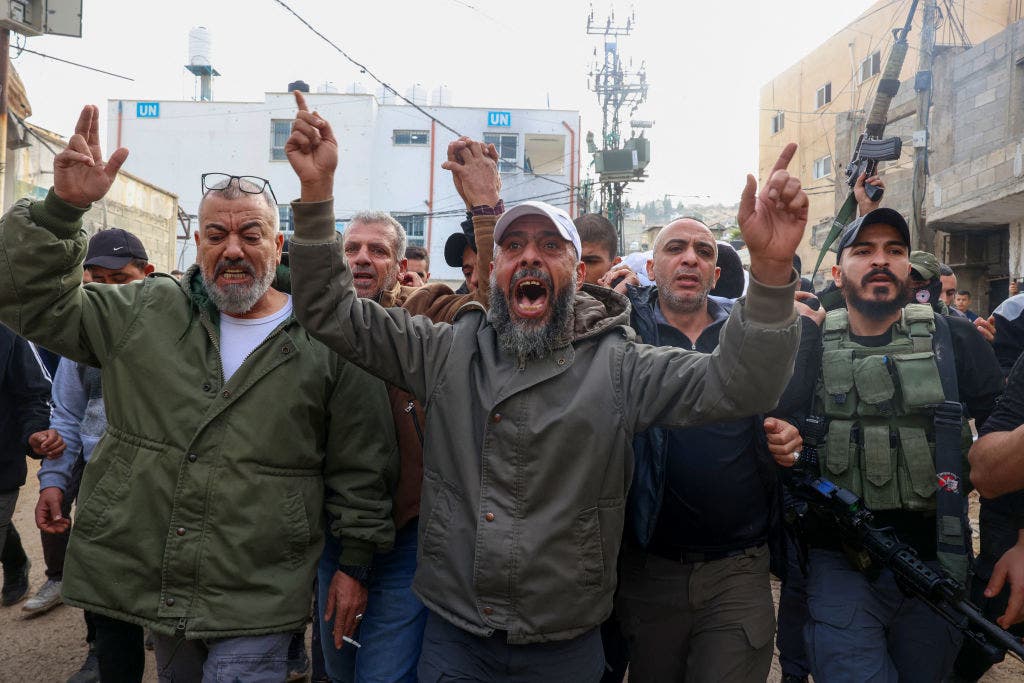
The Palestinian Authority (PA) is facing a growing challenge in the northern West Bank city of Jenin as it launches an ongoing operation against local terror factions supported by Iran, a crackdown that has sparked violent clashes and highlighted the deepening rift between the PA and local communities.
“Iran has been funding militants to buy weapons, and now the Palestinian Authority is acting to stop that. They’ve taken measures to block the money and crack down on the factions. The PA knows Iran will keep supporting Hamas and Islamic Jihad, and this is the challenge they face. It’s the right time to confront Iran, especially after the wars in Gaza and Lebanon- public mood is not welcoming any military confrontation with Israel after what happened,” Mohammad Daraghmeh, Asharq News bureau chief in Ramallah, told Fox News Digital.
The U.S. has reportedly requested Israel’s approval to deliver urgent military assistance to the PA as it intensifies its crackdown on terror organizations in Jenin, Axios reported. The Biden administration is seeking to provide the PA security forces with ammunition, helmets, bulletproof vests, armored cars and other essential items, but needs Israel’s consent to proceed. Historically, U.S. assistance to the PA has ranged between $200 million and $300 million annually. In recent years, especially after the Biden administration took office, there has been a resumption of aid to the PA, following a freeze during the Trump administration.
HAMAS ATTACKER OPENS FIRE AT ISRAELI BUS IN WEST BANK, INJURING AT LEAST 8: REPORT
Mourners shout during the funeral of 19-year-old Rahbi Shalabi, who was killed during clashes between Palestinian security forces and militants a day earlier, in the occupied West Bank city of Jenin on Dec. 10, 2024. (ZAIN JAAFAR/AFP via Getty Images)
“Since October 7th, there has been an increased push from Hamas and Islamic Jihad, with significant Iranian involvement,” said Dr. Michael Milshtein, head of the Forum for Palestinian Studies at Tel Aviv University who further emphasized the shift in the situation since Oct. 7, noting the influence of Iranian-backed forces. “They’re trying to push operations in the West Bank, and there have been attempts to manufacture rockets and fire them at Israeli cities from Jenin. While it’s still in the early stages and these efforts are unsuccessful, it’s a troubling development that signals how Jenin is evolving into a central hub for terrorists.”
Last weekend, PA security forces killed Yazid Jaysa, an Islamic Jihad commander, in an operation that has intensified tensions in the region. This was the third death in Jenin within a week, following the killing of 19-year-old Rahbi Shalabi during gunfights between PA forces and local militants. The deaths have further fueled the discontent in the city, particularly among residents of the Jenin refugee camp. “The entire refugee camp is now against the PA,” said Daraghmeh.
On Sunday, reports surfaced that the PA had positioned its forces outside the refugee camp, but attempts to enter were met with resistance. The terrorists inside the camp, many of whom have vowed to fight the PA’s forces, pose a significant challenge to the PA’s plans for reasserting control.
PALESTINIAN PRESIDENT ABBAS SAYS US IS THE ‘ONLY POWER’ CAPABLE OF ORDERING ISRAEL TO END THE WAR
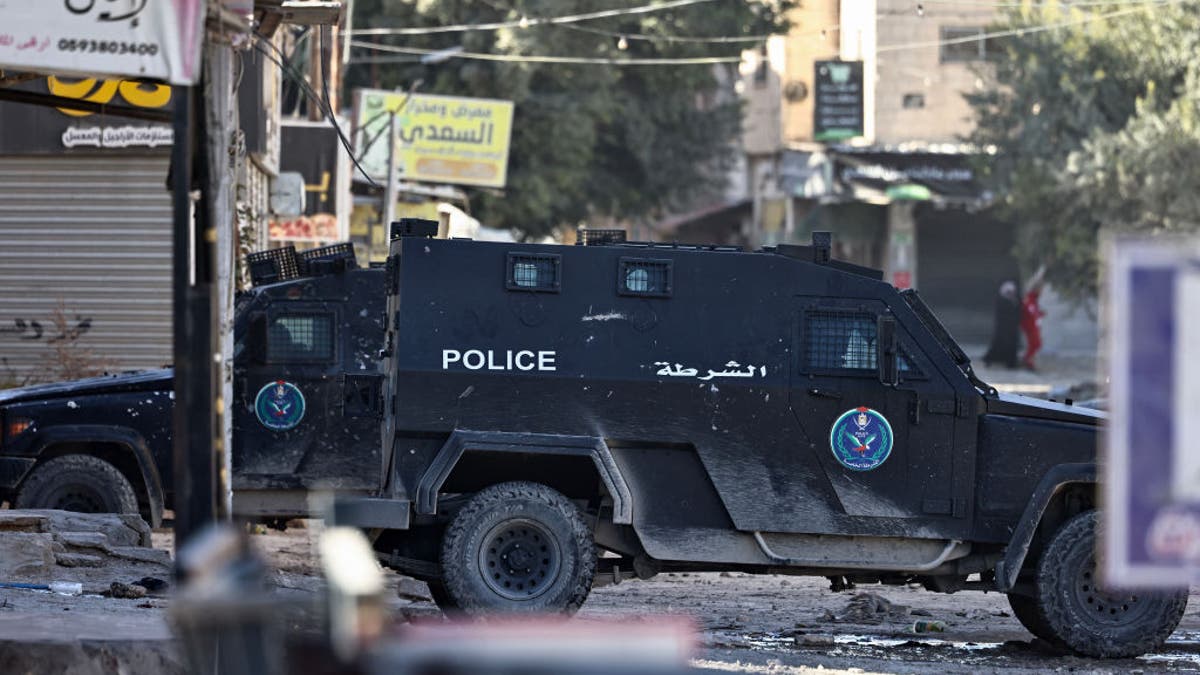
Palestinian Authority security forces vehicles block a road amid clashes with militants in the Jenin camp in the Israel-occupied West Bank on Dec. 15, 2024. For more than a week, the northern West Bank city of Jenin has seen intense violence, after the PA, which coordinates security matters with Israel, arrested several militants. (ZAIN JAAFAR/AFP via Getty Images)
“There’s no active fighting right now, but the PA forces are stuck. They’ve tried to enter, but failed, and now they’re stuck outside,” said Daraghmeh. “They can’t leave, but they can’t continue the operation either, because there are dozens of militants ready to confront them.”
Milshtein, the former head of Palestinian affairs in Israeli Defense Forces military intelligence, told Fox News Digital, “The PA does not have the ability to enforce control in northern Samaria and the surrounding areas. The PA has lost control of these regions, and for years, Israel has treated Jenin and the surrounding areas like Gaza- without PA control mechanisms, and essentially, there’s a real vacuum.”
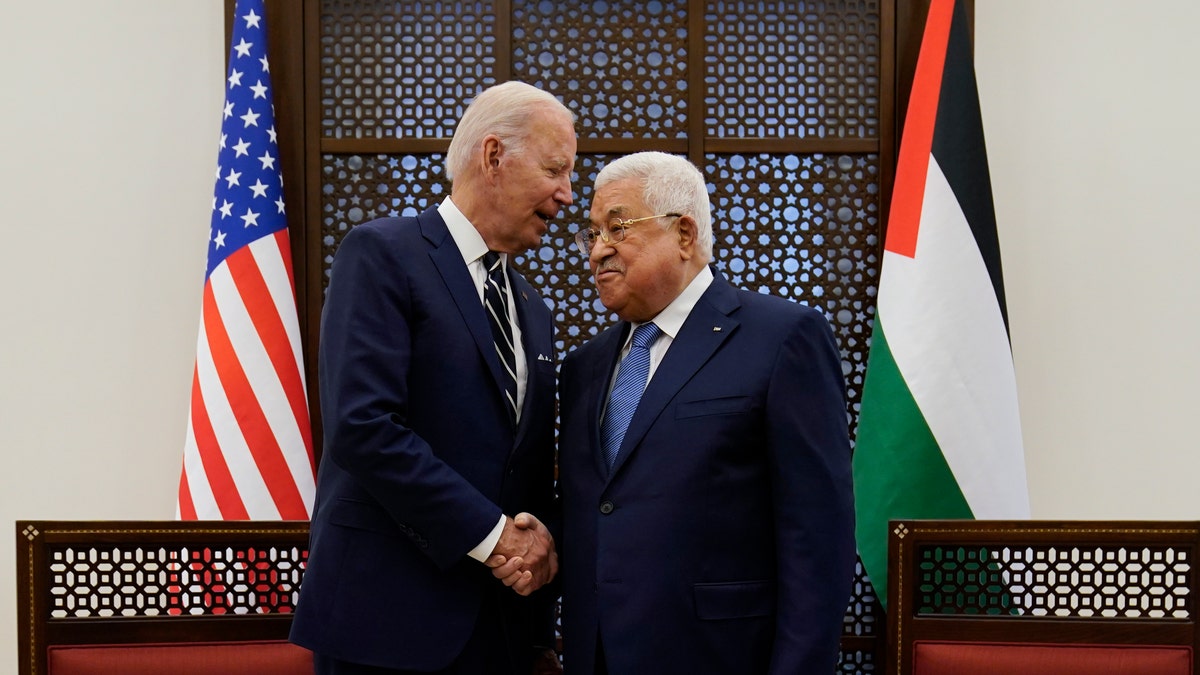
Palestinian President Mahmoud Abbas, right, and President Biden shake hands in the West Bank town of Bethlehem on Friday, July 15, 2022. (AP Photo/Evan Vucci)
The timing of the PA’s operation is significant, with many observers noting that it coincides with the broader regional context, including the ongoing war in Gaza and the fall of Syrian President Bashar al-Assad. Milshtein believes that the events in Syria played a role in the PA’s decision to act. “People in the West Bank say that when one dictator (PA President Mahmoud Abbas) saw what happened to the other (Bashar al-Assad), he decided he would not follow the same fate,” Milshtein explained. “Mahmoud Abbas likely felt that he needed to act before the PA’s authority in the West Bank completely erodes.”
The operation, which is part of a larger crackdown in the northern West Bank, also reflects the PA’s desire to assert itself as a capable authority ahead of potential political developments in Gaza. The PA has long struggled with its ability to govern Gaza, which it lost to Hamas in 2007. Now, with the region in turmoil, it is hoping to prove that it can restore order in the West Bank, which it argues will bolster its legitimacy in any postwar political scenario for Gaza.
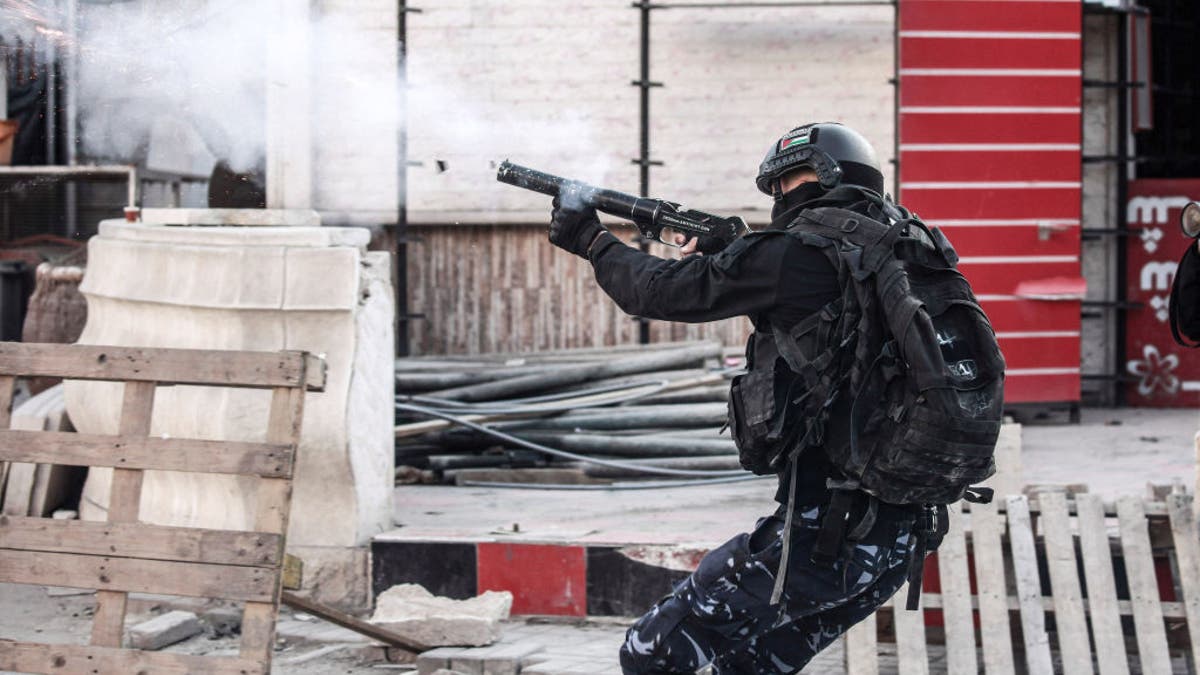
A Palestinian security man fires tear gas at protesters in the center of the West Bank city of Jenin and its camp on Dec. 16, 2024. (Nasser Ishtayeh/SOPA Images/LightRocket via Getty Images)
“I don’t see a possibility that the PA will control Gaza,” Milshtein said, “There are two million people there. For 17 years, they have been ruled by Hamas, and 60% were born after Hamas took control. They were educated to view the PA as collaborators with Israel and enemies. Giving the PA two hours in Gaza is a known failure from the outset.”
Despite the violence in Jenin, Daraghmeh does not foresee the conflict spreading beyond. “People in Ramallah, Hebron and other cities don’t want the West Bank to turn into another Gaza,” Daraghmeh said. “The situation in Jenin is contained, but it remains a test for the PA’s ability to control its own territory.”
World
Can toppled Syrian president Bashar al-Assad be brought to justice?
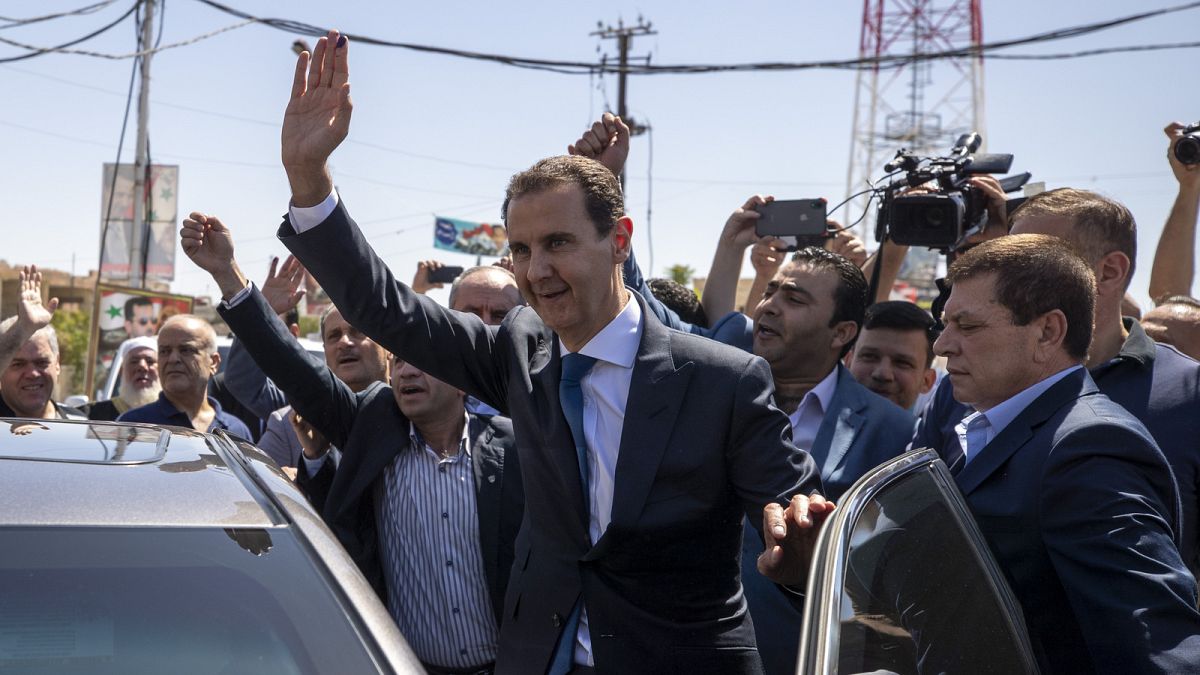
Despite the legal and political barriers to prosecution, human rights experts are optimistic that al-Assad and regime officials could one day be held accountable for their crimes in a court of law.
In Syria, celebrations of the fall of Bashar al-Assad have been mingled with a sense of horror, as gruesome evidence of the atrocities committed by his regime emerge.
Mass graveyards and the infamous prisons that were central to the deposed dictator’s coercive rule have been uncovered.
They bear traces of the brutal suffering inflicted by the regime.
Chaotic scenes of former detainees, their relatives and journalists trawling through paperwork in the detention centres have sparked international pleas on Syria’s new de facto leaders to ensure evidence is preserved for future criminal prosecutions.
Al-Assad and his father, Hafez, have been accused of a litany of crimes and abuses over the past 54 years, including torture, rape, mass executions, enforced disappearances and chemical attacks.
The Syrian Network for Human Rights (SNHR) estimates that at least 15,000 Syrians have been tortured to death since the civil war broke out in 2011.
But with al-Assad in exile in Russia and many of his entourage suspected to be in Iran, there are several legal and political obstacles that stand in the way of criminal accountability.
The Hague-based International Criminal Court (ICC) is the most obvious international court of law for prosecuting individuals for such serious crimes. But the ICC does not have jurisdiction over Syria as the country is not a state party to the court’s treaty, the Treaty of Rome.
The UN Security Council can in principle refer a case to the ICC, granting it jurisdiction. But that would certainly be vetoed by the Kremlin, given its alliance with al-Assad and its own complicity in the crimes.
Both Russia and China blocked such a referral ten years ago.
Speaking to Euronews, Balkees Jarrah, associate director for international justice at Human Rights Watch (HRW) called on Syria’s new de facto authorities to consider granting jurisdiction to the ICC: “We believe Syria’s new leadership should immediately make clear its commitment to justice and accountability,” she said.
“This includes ratifying the Rome Treaty and giving the International Criminal Court retroactive jurisdiction so that the prosecutor can examine crimes committed over the last years.”
All eyes on de facto Syrian leaders
A more viable option in the current political climate is for trials to be held in criminal courts both within and outside Syria.
Experts say it’s too soon to tell whether the new de facto rulers will be able to ensure any Syrian criminal proceedings are carried out safely and in line with international standards.
“We don’t know what the future state of Syria will look like, how the different institutions will work and how well they will cooperate with each other. So this is just something we cannot predict,” according to Elisabeth Hoffberger-Pippan of the Leibniz Peace Research Institute Frankfurt (PRIF).
“The ideal option is to have criminal proceedings in Syria itself that meet fair trial standards, without use of the death penalty. And there is a need to ensure the safety for witnesses and victims to come forward with testimonies,” Vito Todeschini, legal advisor for Amnesty International, told Euronews.
The main rebel group in the new administration is the Hayat Tahrir al-Sham (HTS), designated a terrorist group by the UN Security Council and formerly linked to al-Qaeda.
Its leader, Ahmed al-Sharaa, formerly known as Abu Mohammed al-Jolan, has vowed to “pursue” the regime’s henchmen in Syria and has called on countries to “hand over those who fled” so that justice can be served.
The rebel fighters have also spoken of an amnesty for all military personnel conscripted into service under al-Assad.
But it is currently inconceivable for al-Assad himself to be extradited to stand trial in either a Syrian or non-Syrian court, as there is no political appetite or motive for Moscow to hand him over. Iran is also unlikely to extradite regime officials who have fled there.
Yet, experts consulted by Euronews have expressed hope that al-Assad and the regime’s high-level torturers can one day be held accountable, if the geopolitical conditions change.
“If the sudden fall of the al-Assad regime has shown us anything it is that things can change quite rapidly,” Human Rights Watch’s Jarrah said. “We can’t predict what happens in the future nor preclude the possibility of Assad answering for his crimes one day in a court of law.”
“What we also need to consider right now is how intense and how strong the bond is between Vladimir Putin and Bashar al-Assad,” Hoffberger-Pippan of PRIF said. “I do think that there is a chance Russia might not be as interested in al-Assad in the future because the geopolitical environment is changing in a way that makes it less important for Russia to protect him.”
Calls for international collaboration and preservation of evidence
Universal jurisdiction also allows non-Syrian courts to prosecute Syrians for crimes against humanity, war crimes, and torture.
Criminal cases against regime officials have already been filed in Austrian, French, German, Norwegian, Swedish and US courts, many of which have already successfully pressed charges.
The first international trial on torture in Syria was heard before the Koblenz Higher Regional Court in Germany in 2020. Two former high-level officials of the al-Assad regime were charged, one of whom was found guilty of crimes against humanity and handed a life-long sentence.
In November 2023, a French court issued international arrest warrants for Bashar al-Assad, his brother and two officials over an attack against civilians using chemical weapons in 2013.
According to the Berlin-based European Center for Constitutional and Human Rights (ECCHR), universal jurisdiction carries promise but should be a “fall-back option” if processes within Syria fail.
The push towards justice should be “Syrian-led”, it says.
For any trials, well-preserved evidence is crucial.
During the decades-long regime, offenses were documented by international organisations and Syrian civil society with the help of whistleblowers. The so-called ‘Caesar’ photos, taken by a Syrian military police officer who defected a decade ago, are perhaps the most well-known evidence of torture which has led to criminal proceedings in European courts.
The UN’s International, Impartial and Independent Mechanism (IIIM) has a mandate to collect, preserve and analyse evidence to be used in criminal proceedings and supports Syrian civil society in judicial processes.
Its lead investigator Robert Petit has described “papers strewn all over the floor, people leaving with computers, hard drives burned and smashed” in regime centres during the rebels’ offensive.
“Those in control of these prisons need to safeguard materials in these facilities so that the truth can be told and so that those responsible are held accountable,” HRW’s Jarrah explained.
Euronews reached out to the UN to ask whether its investigators have yet been authorised by Syria’s de facto leaders to gain access to the ground, but has not yet received a reply.
According to the ECHHR, there is also real risk that evidence can be confiscated “to be used as political or commercial capital” or be compromised by secret services agents from countries “interested in destroying evidence and archives.”
World
Zelenskiy, NATO boss and European leaders discuss Ukraine security guarantees

-

 Business1 week ago
Business1 week agoOpenAI's controversial Sora is finally launching today. Will it truly disrupt Hollywood?
-

 Politics6 days ago
Politics6 days agoCanadian premier threatens to cut off energy imports to US if Trump imposes tariff on country
-
/cdn.vox-cdn.com/uploads/chorus_asset/file/25782636/247422_ChatGPT_anniversary_CVirginia.jpg)
/cdn.vox-cdn.com/uploads/chorus_asset/file/25782636/247422_ChatGPT_anniversary_CVirginia.jpg) Technology7 days ago
Technology7 days agoInside the launch — and future — of ChatGPT
-
/cdn.vox-cdn.com/uploads/chorus_asset/file/25789444/1258459915.jpg)
/cdn.vox-cdn.com/uploads/chorus_asset/file/25789444/1258459915.jpg) Technology5 days ago
Technology5 days agoOpenAI cofounder Ilya Sutskever says the way AI is built is about to change
-

 Politics5 days ago
Politics5 days agoU.S. Supreme Court will decide if oil industry may sue to block California's zero-emissions goal
-
/cdn.vox-cdn.com/uploads/chorus_asset/file/25546252/STK169_Mark_Zuckerburg_CVIRGINIA_D.jpg)
/cdn.vox-cdn.com/uploads/chorus_asset/file/25546252/STK169_Mark_Zuckerburg_CVIRGINIA_D.jpg) Technology5 days ago
Technology5 days agoMeta asks the US government to block OpenAI’s switch to a for-profit
-

 Politics7 days ago
Politics7 days agoConservative group debuts major ad buy in key senators' states as 'soft appeal' for Hegseth, Gabbard, Patel
-

 Business4 days ago
Business4 days agoFreddie Freeman's World Series walk-off grand slam baseball sells at auction for $1.56 million




/cdn.vox-cdn.com/uploads/chorus_asset/file/25336519/STK450_EU_G.jpg)
